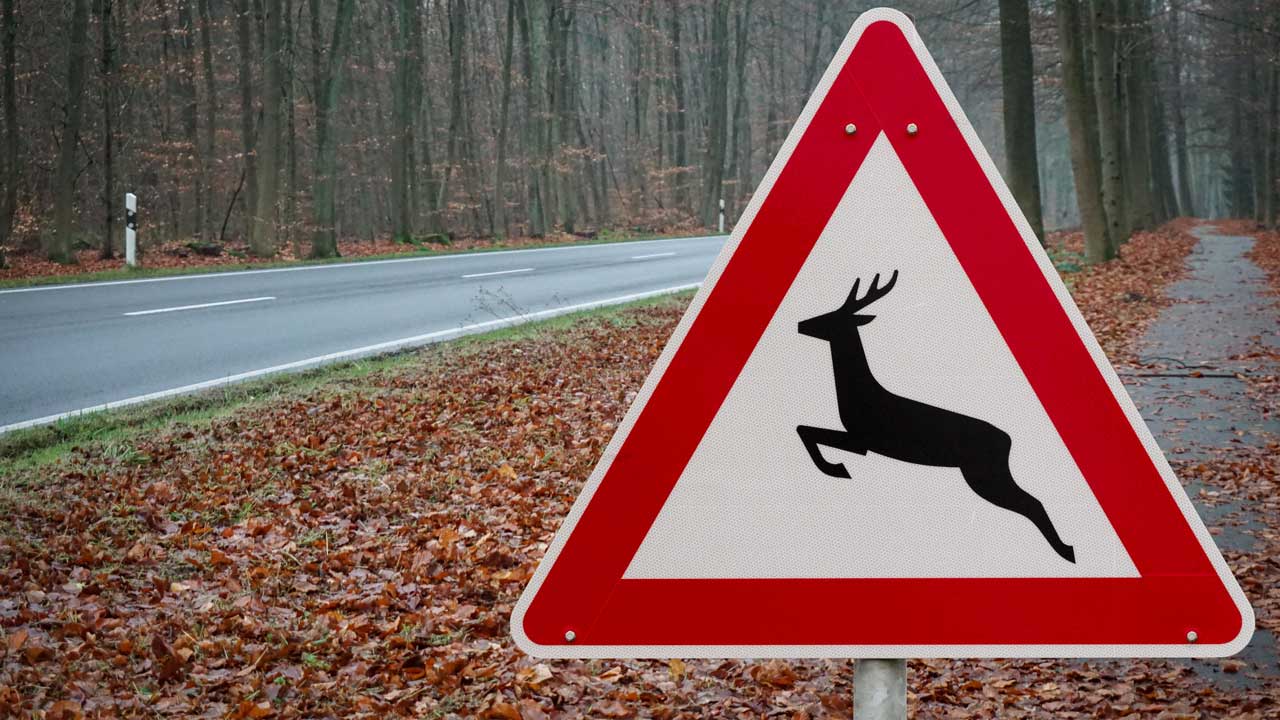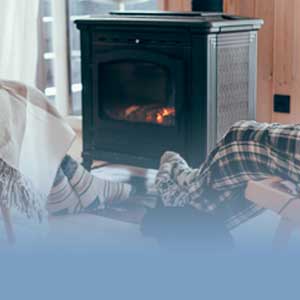Fall is a beautiful time of year. The leaves are changing, the air is cooling down, and unfortunately, deer are on the move. Every year during deer rut season, we see a spike in deer-related auto claims. While we can’t control when deer decide to cross the road, we can help you stay safe and protect yourself if it happens.
During the fall mating season (typically October through December), deer are more active and less predictable. They’re crossing roads at all hours, often in groups, and they’re not paying attention to traffic. Add in the earlier sunsets and you’ve got the perfect recipe for an unexpected encounter.
The good news? A few simple precautions can make a big difference.
How to Avoid Hitting Deer

- ►Stay Alert in High-Risk Areas
Deer are most active at dawn (5-8 a.m.) and dusk (5 -10 p.m.), but they can appear at any time. Pay extra attention when you’re driving through wooded areas, near crops, or anywhere you see deer crossing signs. Those signs are there for a reason. - ►Slow Down
This one’s simple but effective. The slower you’re going, the more time you have to react if a deer jumps into your path. Speed limits are posted for ideal conditions, so don’t be afraid to go a bit slower in deer country, especially during peak times. - ►Use Your High Beams
When there’s no oncoming traffic, use your high beams. They’ll help you spot deer on the roadside before they become a problem. If you see one deer, expect more. They rarely travel alone. - ►Watch for the Gleam
Deer eyes reflect light, so you might spot them before you see their bodies. If you catch that telltale gleam along the roadside, slow down and be ready to stop.
Here’s where things get counterintuitive. Your instinct might be to swerve, but the safest choice is usually to brake firmly and stay in your lane.
- ►Don’t swerve to avoid a deer
- ►Brake firmly and hold your lane
- ►Honk your horn in short bursts
- ►Keep both hands on the wheel
The Exception: If you have plenty of time and space to safely avoid the deer without putting yourself or others at risk, by all means, do so. But in that split second when a deer jumps out, your best bet is to brake and stay straight.
One Simple Trick That Works
Honk your horn! Short, quick bursts of your horn can snap a deer out of that frozen “deer in the headlights” moment and get them moving out of your path. It doesn’t work every time, but it’s worth trying.
We’re Here to Help
At Badger Mutual, we understand that accidents happen, even to the most careful drivers. If you have questions about your coverage or want to make sure you’re protected during deer season, please reach out to your independent agent. They’re here to help you understand your policy and make sure you have the protection you need.
Ready to review your auto coverage? Contact your local independent agent to discuss your policy and make sure you’re protected for whatever the road brings.





